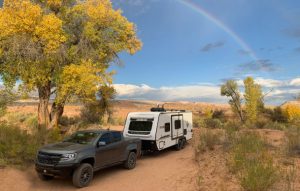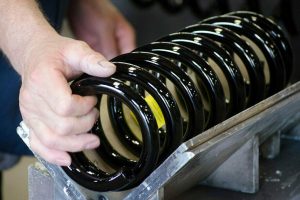Choosing the right suspension springs is essential for drivers who frequently tow trailers, haul construction materials, transport equipment, or carry heavy loads. Standard factory springs are designed for everyday driving and moderate cargo. However, when a vehicle consistently operates under higher weight, specialized heavy-duty springs ensure stability, safety, and long-term durability.
If you’re upgrading or replacing components for better load handling, you can Buy Springs & Components online from reputable suppliers offering heavy-duty options for various vehicle types.
Why Suspension Springs Matter for Heavy Loads

Springs maintain vehicle height, support weight distribution, and help the suspension absorb bumps and vibrations. When towing or carrying heavy cargo, the demands on the springs increase dramatically.
Using the wrong springs can lead to:
-
Rear sagging
-
Poor steering control
-
Excessive sway
-
Reduced braking efficiency
-
Uneven tire wear
-
Excessive strain on shock absorbers
Proper spring selection prevents these issues and ensures safe, predictable handling even under heavy load conditions.
Types of Springs Suitable for Towing and Heavy Loads
Different spring designs cater to different load-handling needs. Below are the most common types used for heavy-duty applications.
1. Heavy-Duty Coil Springs
These springs are thicker, stronger, and have a higher spring rate than standard coils.
Ideal for:
-
SUVs and crossovers
-
Light trucks
-
Vans used for cargo transport
2. Progressive-Rate Coil Springs
Designed with variable stiffness: soft at the top for comfort, firm at the bottom to support heavy loads.
Benefits:
-
Smooth ride when unloaded
-
Increased stiffness under load
-
Reduced sagging
3. Leaf Springs
Common in pickups, vans, and commercial vehicles. Leaf springs are inherently strong and capable of supporting significant weight.
Advantages:
-
Excellent load distribution
-
High durability
-
Suitable for trailers and work vehicles
4. Air-Assisted Springs
Air helper springs or air bags supplement the factory suspension.
Best for:
-
Vehicles with fluctuating loads
-
Drivers who tow only occasionally
-
Leveling the rear under heavy weight
Key Factors to Consider When Choosing Springs
1. Gross Vehicle Weight Rating (GVWR)
GVWR indicates the maximum safe weight your vehicle can carry, including passengers, cargo, and trailer tongue weight.
Your suspension springs should support this capacity comfortably.
2. Tongue Weight and Trailer Type
Trailer tongue weight typically equals 10–15% of the trailer’s total mass.
Example Tongue Weight Table
| Trailer Type | Avg. Weight (kg) | Tongue Weight (kg) |
|---|---|---|
| Small utility trailer | 400 | 40–60 |
| Boat trailer | 800 | 80–120 |
| Car hauler | 1600 | 160–240 |
| RV/Caravan | 2000 | 200–300 |
Higher tongue weight requires more robust rear springs.
3. Driving Conditions
Consider where and how you drive:
-
Highway towing: progressive or heavy-duty coil springs
-
Off-road towing: reinforced leaf springs
-
Mixed terrain: air-assisted springs for adjustability
4. Load Frequency
Choose springs based on how often you tow or carry heavy loads.
| Load Frequency | Recommended Spring Type |
|---|---|
| Occasional towing | Air-assisted springs |
| Frequent towing | Heavy-duty coil springs |
| Professional hauling | Leaf springs or reinforced heavy-duty systems |
How to Recognize the Need for Heavy-Duty Springs
Your current suspension may already show signs of overload. Watch for:
-
Rear end sagging
-
Front lifting when towing
-
Bottoming out on bumps
-
Poor braking stability
-
Excessive trailer sway
-
Uneven or rapid tire wear
If any of these symptoms appear, upgrading the springs is essential.
Comparing Spring Options for Towing
Spring Comparison Table
| Spring Type | Load Capacity | Comfort | Adjustability | Best For |
|---|---|---|---|---|
| Heavy-Duty Coil | High | Medium | Low | Daily heavy hauling |
| Progressive-Rate | Medium–High | High | Low | Mixed driving + towing |
| Leaf Springs | Very High | Low–Medium | Low | Pickup trucks, work vans |
| Air-Assisted | Adjustable | High | Very High | Occasional towing, leveling |
Additional Components to Consider
Upgrading springs is often not enough. For full suspension efficiency, consider enhancing:
Complementary Parts
-
Heavy-duty shock absorbers
-
Reinforced bushings
-
Upgraded sway bars
-
Air compressors (for air springs)
These components ensure that the suspension maintains stability under increased loads.
Installation Tips and Best Practices

-
Always replace springs in pairs (left and right)
-
Check shock absorber compatibility
-
Re-measure ride height after installation
-
Perform wheel alignment after any suspension modification
-
Never exceed the vehicle’s GVWR
For reliable replacements and high-load-rated components, you can Buy Springs & Components online and choose models suited for towing and commercial use.
Conclusion
Selecting the right suspension springs for towing and heavy loads is critical for vehicle safety, stability, and long-term durability. By understanding your vehicle’s weight limits, towing habits, driving style, and load frequency, you can choose springs that deliver the right balance of support and comfort.
Whether you haul occasionally or rely on your vehicle for daily commercial tasks, high-quality springs make the difference between unpredictable handling and confident, stable driving.
When upgrading, make sure to buy Springs & Components online from trusted suppliers offering heavy-duty and progressive-rate options designed for heavy load applications.